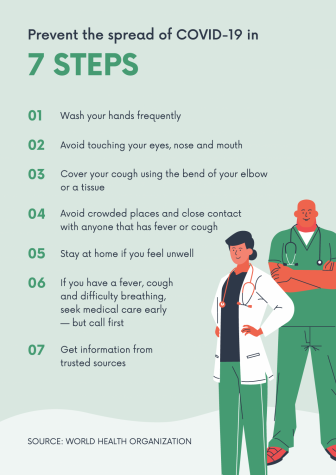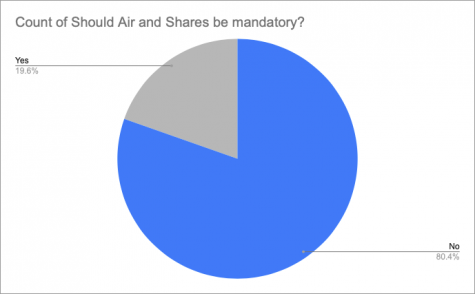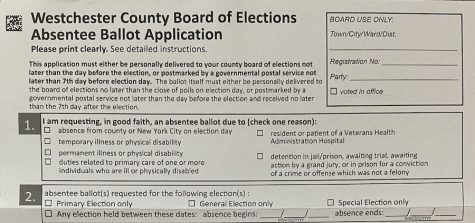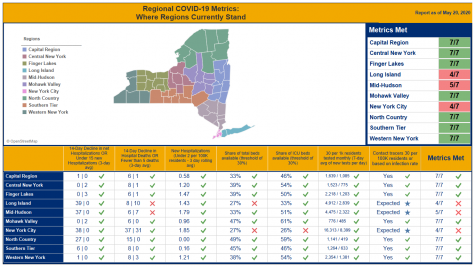February Exams Need Reform
Seniors Tyler Curran and Cate Goldsmith utilize time in the library to study for exams, yet they still have work for the second trimester to complete. Photo by Robert Hallock.
February 10, 2015
Early spring is when Hackley truly earns its reputation for rigorous and demanding academics that push students to their limits. Just as the snow begins to melt, and as spring break beckons, students must face one final, anxiety-riddled test to escape winter: exams. Taken, depending on the year, during either late February or early March, these comprehensive (to put it lightly) exams evaluate students’ retention of information learned during the first and second trimesters, and can count for up to 1/7 of a student’s cumulative end-year grade.
Exams certainly aren’t popular among the students. Junior Sammy Mueller went as far as to say that “… exams are, by far, my least favorite thing about Hackley, and I can’t understand why,” she continued, “we spend so much time cramming for old material that we were already tested on.”
The question she raises is a valid one: what is it about exams that justifies the wasted time and anxiety they create?
The most common response given by administrators and exam apologists is that the exams prepare students for similar assessments that will be faced in college. Hackley, after all, is a member of the Ivy Preparatory League, and so must prepare its students for the realities they will face at the most prestigious colleges.
This argument, however, is predicated on the idea that students must actually face these exams in college. In reality, they often do not. According to Keith O’Brien of the Boston Globe, even at Harvard University – one of the most prestigious, competitive, and academic institutions that Hackley purports, by its very affiliation with the Ivy League to prepare students for – less than a quarter of all undergraduate classes actually have a final exam. In fact, the Harvard administration no longer assumes courses will conclude with an exam; professors must actually go out of their way to inform the administration and registrar if they plan on holding a final.
And it’s not just at Harvard that exams are going the way of the dodo. Mr. O’Brien concludes his research by stating that “Across the country, there is growing evidence that final exams – once considered so important that universities named a week after them – are being abandoned or diminished.” When so many universities are abandoning their exam weeks, why must Hackley keep theirs?
The other argument given by defenders of the current exam system is that it forces students to retain information they’ve learned over a long period of time, not just cram it in for a week before a quiz. While there may be some merit to this argument, there is certainly no consensus. In fact, many believe that exams have no effect on long-term information retention; David Jaffee, a Sociology professor at the University of North Florida, says that “for many students, studying for exams means ‘cramming,’” and “a growing amount of research literature consistently reports that cramming – short-term memorization – does not contribute to retention.”
Even if, however, it is true that exams contribute to long term information retention, Hackley’s system doesn’t make sense. If the goal of the exam system is truly to ensure that information throughout the year is retained, why would exams be held before the year is concluded? Insuring that students are retaining a year’s worth of material cannot possibly justify exams when the exams are not held at the end of the year.
Two full weeks are eliminated from the school year as a direct result of the exams – one for review, and one for sitting for the exams themselves. That’s two weeks that could be spent learning, rather than cramming in old material. When we know that exams are becoming less and less popular at the collegiate level, and that this ‘cramming’ doesn’t actually promote learning, how can we justify the loss of these two weeks of school? Ten days of learning is a huge loss for students, and the administration can no longer defend it.
Hackley’s exam policy injects the entire community with a shot of anxiety, and robs students of two full weeks of school. These are two serious drawbacks that should not be taken lightly. The exams are no longer crucial in preparing students for college exams, too, because there simply are far fewer college exams to prepare for. And even if exams do significantly help students retain information in the long term – which is certainly in question – leaving 1/3 of the year’s material off the exam would seem counterproductive to this goal. Given the obvious drawbacks and dubious benefits, Hackley’s current exam policy seems hard to justify. The administration should seriously consider alternatives.







